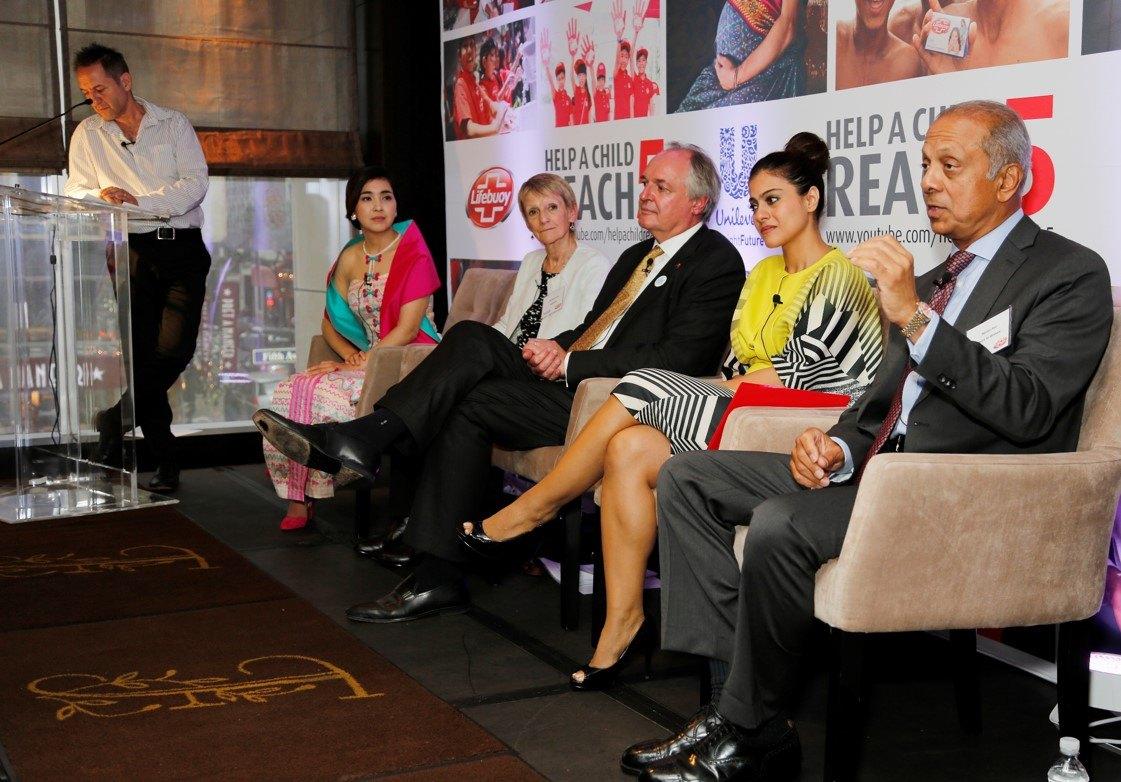
By Andy Last
On Sept. 25, at its General Assembly in New York, the United Nations formally adopted the Sustainable Development Goals (SDGs), the global goals that will set the development agenda until 2030.
The following day these goals formed the center piece of a special concert in Central Park, the Global Citizen Festival, featuring performances from Beyoncé, Coldplay and Ed Sheeran; impassioned speeches from Leonardo DiCaprio, Michelle Obama and Hugh Jackman; appeals for support from everyone from Ban Ki Moon to Big Bird; pledges of money and resources from prime ministers and presidents; and commitments from business leaders.
Being in New York to witness this, it felt an odd mix in some ways. Pop stars and Hollywood A-listers alongside politicians, aid workers and corporates. But in other ways it wasn’t. We do all share the same home, and our needs are interlinked and interdependent like never before. Governments of wealthy nations have a vested interest in governments of developing countries being able to provide safety and hope to their citizens; otherwise what is now a refugee crisis will become the new normal. Businesses benefit from people moving out of poverty and having more money to spend - an aim they share with many NGOs, even if they are coming at the problem from different starting points. Stars attaching themselves to substantive social and environmental issues helps make meaning of their celebrity status to themselves and their audiences.
And environmental issues affect all of us on the planet. The actions of each of us -- individual and community, company and country -- impact the others.
Understanding and communicating these vested interests – as well as the shared goals where they overlap -- increases trust between the different types of organizations and makes effective partnership more likely. Every country and every type of organization represented on the stage in Central Park benefits from ending extreme poverty, fighting inequality and injustice, and combatting climate change, the three overarching aims of the SDGs. The 17 individual SDGs offer guidelines for practical co-operation between different countries and different types of organizations.
SDG No. 2, for example – to end hunger, achieve food security and improved nutrition, and promote sustainable agriculture – provides the blueprint for rich and poor governments, NGOs and food companies, citizens and agrochemical businesses to work together. The common goal gives each group something tangible on which to build partnerships, while acknowledging each other’s separate objectives.
SDG No. 6 – to ensure availability and sustainable management of water and sanitation for all – is the framework within which NGOs and governments, business and celebrities like Matt Damon can work together in common purpose, without being distracted by their differences.
Each of the SDGs requires business to get involved in some shape or form if they are to be achieved. Achieving gender equality needs the active participation of private-sector employers and can be accelerated – or slowed – by mass consumer brands that talk to girls. Providing access to energy needs the enthusiastic involvement of energy businesses. Anyone wanting to make cities sustainable has to work with the construction industry. The list goes on.
And if the world wants businesses to get involved, we have to recognize that they are businesses and that they need to behave as businesses. Good businesses for sure, but businesses all the same, which means making a commercial return on their activities. We all need to recognize that, and businesses need to be comfortable with admitting that, to themselves and to their stakeholders.
There is clearly an increasing transparency in this, driven by the transparency of the Internet, but there are still plenty of voices criticizing businesses for wanting to make money, and plenty of businesses still shy about saying they need to make sustainability commercially sustainable.
The end of September also marked, with a little less fanfare, Salt Communications' accreditation as a B Corp. We are among the first 62 companies announced at the launch of B Corporation in the U.K. and are proud to be in such good company, along with established U.S. B Corporations like Ben & Jerry’s, Etsy and Patagonia. As part of the accreditation process, we had, as all B Corps have, to amend our articles of association to include not only running the business as a going commercial concern, but also to have a material positive impact on society and the environment.
This is our own small reflection of what we saw on-stage in New York – a pointer to a future where commercial, social and environmental are publicly recognized as intrinsically connected and mutually dependent.
Andy Last is CEO and co-founder of salt communications. He leads salt Social Purpose, which helps businesses and brands find the right social mission and communicate it in a way that promotes business growth openly and enthusiastically alongside wider social benefits. Since 2000, salt has worked with organisations including Kimberly-Clark, ManpowerGroup and Unilever, helping create social missions for brands like Andrex, Knorr, Domestos and Lifebuoy.
TriplePundit has published articles from over 1000 contributors. If you'd like to be a guest author, please get in touch!














